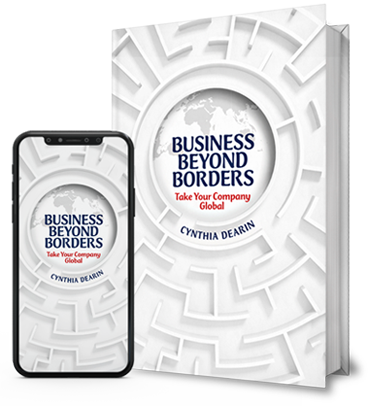Manufacturing in Australia is on the upswing. Despite the chaos that COVID19 created in 2020, the sector is bouncing back, thanks to a combination of pent-up demand, reshoring bringing some production back home and robotics driving reductions in production cost.
Many manufacturing companies – including our clients – are also looking at expanding internationally, to drive revenue and to prevent foreign competitors from taking market share. Off the top of my head I can think of a manufacturer of welding technology, an organic skincare business, a maker of dental appliances, a packaging manufacturer, a building supplies company and a specialist in high-end lighting, all of which are seriously considering or already engaged in expansion to the US or Europe.
What will determine how successful each of these companies will be in expanding a manufacturing business globally? In my opinion, strategy will be a key factor. Here are five reasons that support that view.
Thinking of expanding your manufacturing business globally? Find out more about our market entry services for manufacturing companies.

Without a strategy, it’s hard to know where to start
Many of the business owners who I speak to about expanding a manufacturing business globally tell me that they don’t have an international strategy. This is a problem, because no strategy usually means not knowing where to start to make global success a reality.
These business owners have a bunch of ideas, but no confidence about the right first step to set the process in motion. Lack of certainty about what to do and fear of getting it wrong often prevent them getting started. Meantime, other companies that do have an international strategy and the confidence to execute it, go ahead and take market share on the global stage.
A strategy helps you focus
The process of putting together a strategy is amazing in terms of what it does for your level of focus. For example, I recently worked with a company that manufactures a great product in the health space, but hadn’t gotten as much traction as it needed, either at home or overseas.
When I met the CEO, he was targeting a bunch of customer segments, considering several countries as potential markets for the product … and struggling to get traction with investors.

As we started to create the vision and articulate a strategy to support it, it was amazing to watch the chaos and uncertainty fall away and a clear, highly focused concept emerge. I’m not exaggerating when I say that in the space of 24 hours, the company went from targeting four segments and six markets and having indifferent investors, to targeting one segment, one big international market and receiving strong signals of interest from the investor group.
A strategy informs your action plan
Once you have a strategy, it becomes much easier to know what you need to do. Companies that start going global without a strategy often run around spending time and energy trying lots of things that either don’t contribute much to international success or worse still turn out to be a complete waste of time.
On the other hand, I’ve had clients who spent years getting mediocre results in international markets achieve a reversal of fortunes in the space of a year, simply by creating a strategy and implementing it. One which springs to mind is a manufacturer which sells into 35 countries and achieved its best results ever in 2020, despite the chaos and astronomical freight costs caused by COVID 19. This company went from not being sure what to do in overseas markets, to being very sure about what to do, because they had defined a clear idea of what they wanted to create. Figuring out the ‘how’ was so much easier once the ‘what’ was clear.

A strategy saves time and money
Although it’s counter-intuitive, a strategy saves you as a CEO or business owner time and money. An objection that I hear frequently is that people don’t have time to invest in creating a strategy, because they’re too busy. The irony is that if you don’t invest in a strategy, you usually waste time and money doing the wrong stuff.
I recently saw an example of this when a company I’m acquainted with decided that strategy was a waste of time and they’d just kick on with an international set-up. After establishing a bunch of offshore companies and bank accounts, they changed their minds about how they wanted their overseas business to work and realised that what they’d spent four months and thousands of dollars on wasn’t going to do what they wanted. The irony is that the extra expense and wasted time could have been avoided if they’d been prepared to invest a day or two in sitting down and sifting through their ideas to create a strategy.
Companies that can be bothered to create a strategy usually find that they are able to move quickly to complete the tasks necessary to create international success, because they are clear on what they are. They also spend a lot less on international expansion, because they’re not taking a trial-and-error approach to the exercise.

Without a strategy there’s no measure of success
And finally, strategy matters because it enables you to measure to success. I like to compare embarking on international expansion without a strategy to getting in the car and driving without a destination in mind … how do you know when you’ve arrived?
When you have a strategy, you have a means of benchmarking your performance and a point for reference if you decide to depart from your original plan. And that brings certainty.







